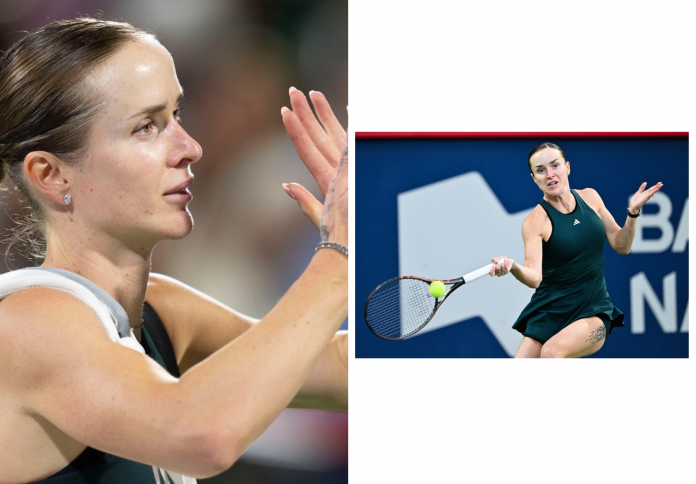Professional sports, at their best, are defined by skill, grace, and human excellence. But as the world of online sports betting has grown, a darker, more troubling side of the game has emerged. Ukrainian tennis player Elina Svitolina recently became the latest, and most prominent, example of this growing crisis. Following her quarterfinal loss at the National Bank Open, Svitolina was deluged with hateful online abuse from frustrated gamblers, including death wishes and vile messages celebrating the war in her home country. Her experience is a stark and deeply troubling reminder of the abuse athletes are now facing, with their on-court performance linked directly to the financial fortunes of angry bettors.
The Human Target: A Mother, an Athlete
The messages Svitolina received, which she shared on her Instagram stories, went far beyond simple fan frustration. They were deeply personal and hateful, wishing her death and directing racial slurs at her husband, the French tennis player Gaël Monfils. One message chillingly hoped that Russia “kills all you (expletive) Ukrainians.” In a powerful response, Svitolina wrote, “I’m a mom before I’m an athlete. The way you talk to women—to mothers—is SHAMEFUL. If your moms saw your messages, they’d be disgusted.” Her words underscored the dehumanizing nature of the abuse, which treats athletes as mere components of a betting slip rather than as people with families, feelings, and personal struggles.

A Widespread Crisis: More Than a One-Off Incident
Svitolina’s experience, while shocking, is not an isolated case. It is part of a systemic problem that has prompted both the WTA and ITF to take action. A joint report from the organizations on online abuse in 2024 revealed the scale of the issue: 458 tennis players were targeted by more than 8,000 abusive comments and posts on social media. The study found that “40% of the abuse came from ‘angry gamblers.'” This trend is mirrored in other sports as well. A study by the NCAA found that 1 in 3 high-profile student-athletes received abusive messages from those with a betting interest. In men’s tennis specifically, 21% of Division I student-athletes reported experiencing harassment from bettors. The abuse is particularly egregious in women’s sports, where women’s basketball student-athletes have received approximately three times more threats than their male counterparts.
The Betting Boom: Fueling the Fire
Experts and athletes agree that the surge in online abuse is directly linked to the rapid expansion and legalization of sports betting. The NCAA, for instance, has noted a “direct” correlation between the legalization of sports betting in various states and the increase in abuse directed at student-athletes and coaches in those regions. With millions of dollars wagered on every game, the high-stakes world of sports betting has created a class of gamblers who see an athlete’s performance as a direct reflection of their own financial success or failure. When a bet is lost, these individuals feel entitled to lash out at the person they blame, often with a level of vitriol and entitlement that is unprecedented.
A Call to Action: The Future of Athlete Protection
Svitolina’s courageous decision to expose the abuse has thrust a harsh spotlight on a “shameful” problem. As sports organizations, athletes, and fans grapple with the consequences of the betting boom, a unified approach is becoming increasingly necessary. The WTA and ITF have called on betting companies to do more to stem the flood of online abuse. It’s a call that recognizes the shared responsibility of all stakeholders—the athletes, their governing bodies, and the companies that profit from the industry. For the mental health and safety of athletes, and for the integrity of the game itself, the sports world must work together to ensure that the joy and passion of sport are not eclipsed by the darkness of online harassment.










